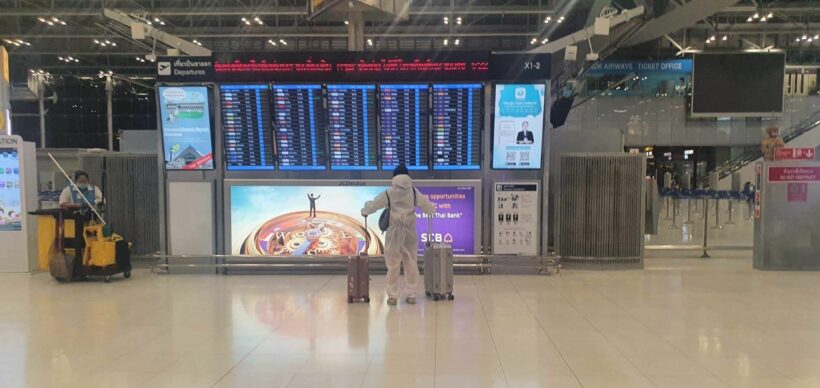2020: A year in Covid-19 milestones

As the world embraces the dawn of a new year, while tentatively waiting to see what it has in store, it will be some time before the trauma of 2020 can be laid to rest. The year that has just ended will forever be remembered for the Covid-19 pandemic that has claimed over 1.8 million lives to date, infected millions worldwide, and decimated the global economy.
The current assumption is that Covid-19 began in central China, with the first cases reported in Wuhan, in December 2019. However, some sources dispute the origins of the virus, with claims that it may have been spreading undetected in Europe even earlier in the year. The bottom line is that, as with much else connected to this virus, nobody really knows yet.
Here, we take a look back on 2020’s Covid-19 milestones as they occurred.
January 9
Covid-19 claims its first life, in Wuhan, China. Chinese authorities report the death of a 61 year old male patient on January 11, citing a coronavirus-type illness. The news prompts countries used to such outbreaks, such as Hong Kong and Singapore, to instigate screening of visitors arriving from Wuhan. Meanwhile, millions of Chinese nationals continue to make travel plans for the upcoming Chinese New Year.
January 28
By now, 100 deaths have been reported and the virus has spread beyond China’s borders. Some countries send planes to evacuate their citizens from Wuhan, which is still the epicentre of the outbreak and in strict lockdown. Facemasks are now mandatory in some Chinese cities, as health officials conclude the virus originated in illegal wildlife at a Wuhan wet market.
January 30
The World Health Organisation declares a global emergency.
February 10
The death toll reaches 1,000, as more countries record their first infections and the virus is officially named Covid-19. By the end of the month, hundreds of people test positive while stranded on the Diamond Princess cruise ship in Japan. A British passenger becomes the first UK national to die from the virus.
March 19
The British Prime Minister, Boris Johnson, insists the UK can “turn the tide” against the virus within 12 weeks.
March 20
The virus has now claimed 10,000 lives, as attention turns to Europe, which accounts for around half the global death toll. At this stage, Italy is by far the worst-affected country, and has been in strict lockdown since earlier in the month. Around 250,000 infections have been recorded around the world, with 80,000 people having recovered. China records its second consecutive day of no new local infections.
March 24
The UK goes into national lockdown, with the death toll having reached 335.
March 26
Boris Johnson tests positive for the virus. On April 5, he is admitted to hospital. On April 6, he is transferred to intensive care as his condition worsens.
Thailand declares a state of emergency, sealing its borders. The country goes into national lockdown, with all but essential businesses shut, inter-provincial travel banned, and the southern island of Phuket cut off from the mainland.
April 9
100,000 deaths worldwide. The UK has now lost nearly 9,000 lives to Covid-19, with London declared the epicentre of the virus. The then US President Donald Trump denies his administration has been too slow to respond to the threat, while admitting up to 100,000 Americans could lose their lives. Today, the US death toll stands at over 340,000.
April 10
New York records more cases of the virus than any individual country.
April 12
Boris Johnson is discharged from hospital after his condition improves.
June 29
Covid-19 has claimed 500,000 lives worldwide. With the arrival of summer, lockdown has been eased in some countries. The EU says that from July 1, it will re-open its borders to some countries, including Australia and Canada, but excluding the US. The virus continues to accelerate in the United States and the rest of the Americas, as well as in Africa and South Asia.
July 1
Following a phased easing of restrictions, Thailand emerges from the final stages of lockdown, with the exception of its borders, which remain shut to most international arrivals.
September 28
The world records a sobering milestone of 1 million deaths from Covid-19. The US, Brazil and India are the worst-affected countries.
October 2
Donald Trump and his wife Melania test positive for the virus. While she isolates at home, he is admitted to hospital the following day. He is discharged 3 days later, following treatment with the steroid, dexamethasone.
November 9
US pharmaceutical giant Pfizer announces that its vaccine, developed in conjunction with German biotechnology firm, BioNTech, has proved 90% effective in phase 3 trials. The announcement is swiftly followed by more positive news about the efficacy of the Moderna vaccine, as well as that developed by AstraZeneca, in partnership with the UK’s Oxford University.
December 15
Most of Europe continues to battle a second wave of the virus. The British government comes under increasing pressure to impose stricter restrictions over the Christmas period, in line with measures in other European countries.
December 19
Thailand finds itself facing a resurgence of the virus, having seemingly gone months without a case of local transmission. The spike began when a 67 year old woman who worked in a fish market in the central province of Samut Sakhon tested positive. Read the story about the Samut Sakhon Cluster HERE.
December 30
The “Samut Sakhon Cluster” has now become a national outbreak and spread to 45 provinces in just 11 days, with active cases in the Kingdom now surpassing 2,400, adding nearly 50% to the total before December 19.
January 1, 2021
The world has now recorded 83,806,857 infections of Covid-19. The death toll currently stands at 1,825,709, as of 9am Thai time on New Year’s Day.
SOURCE: BBC News | Worldometers
Latest Thailand News
Follow The Thaiger on Google News:


























